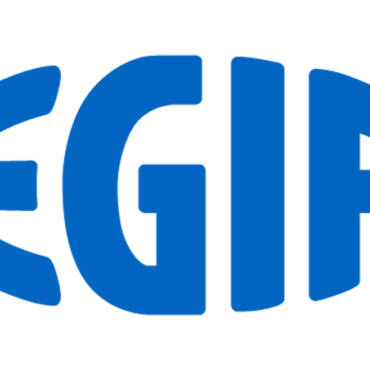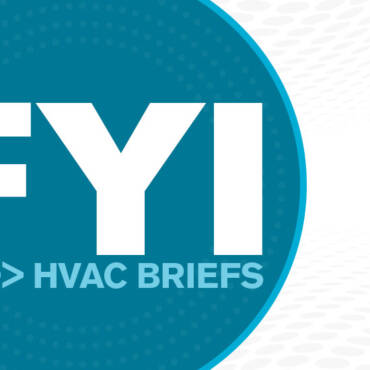✕
The U.S. National Science Foundation (NSF) recently announced that six universities — University of Kansas in partnership with Lehigh University, University of Hawaii, University of Maryland, University of Notre Dame, and University of South Dakota — have been awarded $26 million to establish a new Gen-4 Engineering Research Center (ERC) named Environmentally Applied Refrigerant Technology Hub (EARTH) to create a sustainable and circular refrigerant economy. The award is part of a larger $208 million grant that the NSF is giving to four new NSF ERCs to create technology-powered solutions that it says will benefit the nation for decades to come.
According to the NSF, HVACR energy consumption combined with HFC leaks accounts for 7.8% of total greenhouse gas emissions. The EARTH ERC will use a team-science approach to bring together talent in engineering (chemical, environmental, mechanical, and materials), architecture, business, chemistry, economics, geography, history, law, psychology, and entrepreneurship in one Innovation Ecosystem to co-create convergent technical and societal solutions with industry partners, technical and community colleges, professional organizations, regulators, and end users.
EARTH’s vision is to create a transformative, sustainable, refrigerant lifecycle to address the HVACR ecosystem’s key technical and societal challenges, which include: 1) lowering HFC emissions, 2) creating safe, property-balanced replacement refrigerants, and 3) increasing HVACR energy efficiency. In addition, EARTH will work toward workforce goals co-created with industry to increase the number of HVACR engineering researchers.
Multidisciplinary Approach
The University of Kansas (KU) will serve as the lead university, and Mark Shiflett — a KU Foundation Distinguished Professor in the Department of Chemical & Petroleum Engineering — will be the director for EARTH.

SEPARATING REFRIGERANTS: Dr. Abby Harders (left) and Dr. Kalin Baca from the University of Kansas researched how to separate refrigerants by using membranes and ionic liquids, which will be one of the projects in the new ERC EARTH. (Courtesy of the University of Kansas)
“Multidisciplinary research teams will focus on three key areas: promoting the recycling and repurposing of refrigerants; developing transformative refrigerants; and creating next-generation cooling and heating technologies with higher energy efficiency,” said Shiflett.
To that end, Lehigh University’s team, led by David Vicic, the Howard S. Bunn Distinguished Professor of Chemistry, will focus on developing solutions to deal with the reclamation and repurposing of high-GWP legacy refrigerants. These solutions are needed to prevent millions of metric tons of high-GWP refrigerants from leaking and illegally venting into the atmosphere. According to the university, approaches will include new security markers for refrigerant producers to use at ports of entry and regional/local distribution centers; low-cost, energy-efficient separations of individual HFC compounds from recycled mixtures, waste refrigerants, and future HFO blends; and new methodologies for repurposing high-GWP refrigerants into diversified fine and commodity chemicals.
The University of Hawaii’s team will be led by Professor Ralf I. Kaiser, from the chemistry department in the College of Natural Sciences, who said that one of their roles in the EARTH project will be, “developing a tightly integrated collaborative network to predict for the first time the atmospheric impact of potential new refrigerants before they are incorporated into HVACR systems.” To accomplish that, the Hawaii team will study the atmospheric chemistry of gas phase refrigerants and their interaction with atmospheric ice particles, as well as employ crossed molecular beams and acoustic levitators to study the fate of refrigerants in the atmosphere. Computer simulations with artificial intelligence will help them to understand the reaction at the atomistic detail.
Professor and Interim Chair of the Department of Materials Science and Engineering, Ichiro Takeuchi, will serve as research lead for the University of Maryland, along with his co-lead, visiting professor Dongxia Liu, who has an appointment in the Department of Chemical and Biomolecular Engineering. Their research will concern novel and safe refrigerants and energy-efficient systems, while Brent Goldfarb, a professor at UMD’s Robert H. Smith School of Business, will focus on reclamation and repurposing.
“The new ERC will allow us to continue our work on alternative cooling technologies such as elastocaloric cooling, which is based on metallic refrigerants,” said Takeuchi. “It is extremely timely given that we have recently shown that the group of solid state cooling technologies called calorics have matured to the point where scaling up devices and systems can soon lead to commercial applications.”
Jennifer Schaefer, the Sheehan Family Collegiate Professor in the Department of Chemical and Biomolecular Engineering will lead the Notre Dame team, which will include eight additional members of the College of Engineering. According to Schaefer, the Notre Dame teams will focus on developing new, more economical ways to separate HFCs to reuse or recycle them; achieving safer refrigerants that maintain or improve performance but do not negatively affect Earth’s atmosphere over time (Notre Dame will do computational prediction work for this stream in collaboration with atmospheric scientists at the University of Hawaii); and pioneering technologies that will increase the energy efficiency of refrigeration systems to reduce the electricity demand on the grid.
Notre Dame researchers will also develop new ways of sensing refrigerant leaks, engineer solid-state systems that eliminate the need for refrigerant fluids, and explore new approaches to moving heat, while also contributing expertise in environmental law and sustainable architecture to support the successful implementation of new technologies developed by the center.
Haoran Sun, Ph.D., a professor in the Department of Chemistry, will be the University of South Dakota’s principal investigator and will collaborate with USD faculty and students to contribute to the project.
“The EARTH project represents a key collaboration that will strengthen the U.S. economy in the refrigeration sector, leading the global market in this industry,” said Sun. “This is very exciting news for USD, and I am so glad that our USD team can contribute to such large-scale interdisciplinary research collaboration.”
Whether you require installation, repair, or maintenance, our technicians will assist you with top-quality service at any time of the day or night. Take comfort in knowing your indoor air quality is the best it can be with MOE heating & cooling services Ontario's solution for heating, air conditioning, and ventilation that’s cooler than the rest.
Contact us to schedule a visit. Our qualified team of technicians, are always ready to help you and guide you for heating and cooling issues. Weather you want to replace an old furnace or install a brand new air conditioner, we are here to help you. Our main office is at Kitchener but we can service most of Ontario's cities
Source link



Add Comment